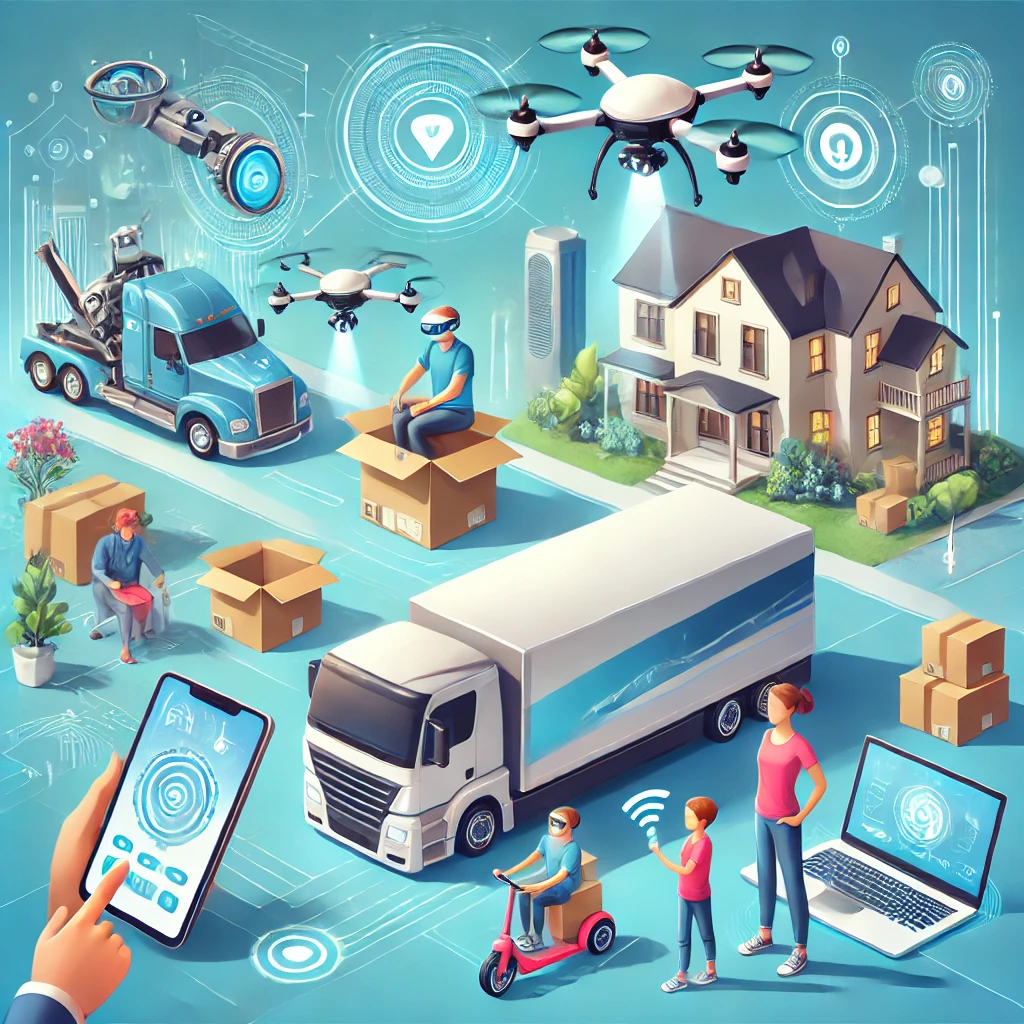
Published on August 8, 2024
administrator
Published on August 8, 2024
In an era where technological advancements are reshaping industries across the board, the moving industry stands poised for significant transformation. From virtual surveys to AI-driven logistics, innovative technologies are not just enhancing efficiency but also revolutionizing the moving experience for consumers and professionals alike.
Virtual Surveys: Redefining the Pre-Move Assessment
Gone are the days of in-person estimates and tape measures. Virtual surveys have emerged as a game-changer in the moving industry, allowing customers to obtain accurate moving quotes from the comfort of their homes. Utilizing smartphones or webcams, moving companies can conduct detailed assessments of household items, room dimensions, and special requirements remotely. This not only saves time but also reduces the hassle associated with scheduling appointments and accommodating multiple visits.
AI and Predictive Analytics: Optimizing Logistics and Planning
Artificial Intelligence (AI) is playing a pivotal role in optimizing moving logistics and planning. By analyzing historical data, AI algorithms can predict moving patterns, anticipate peak times, and optimize route planning for maximum efficiency (Forbes). This capability not only minimizes transportation costs but also enhances customer satisfaction by ensuring timely deliveries and reducing the risk of logistical errors.
IoT and Smart Home Integration: Streamlining the Moving Process
The Internet of Things (IoT) has revolutionized how we interact with our homes—and moving is no exception. IoT-enabled devices can now facilitate seamless transitions by automating tasks such as inventory tracking, climate control adjustments, and security monitoring during the move (McKinsey & Company). Smart home integration allows homeowners to remotely manage and monitor their belongings, ensuring everything arrives safely and securely at the new destination.
Blockchain Technology: Enhancing Transparency and Security
Blockchain technology is transforming the moving industry by enhancing transparency and security throughout the relocation process. Through immutable ledgers, blockchain enables secure documentation of contracts, insurance policies, and inventory lists (Deloitte Insights). This reduces the risk of disputes and ensures that sensitive information remains protected against unauthorized access or tampering.
Virtual Reality (VR) and Augmented Reality (AR): Enhancing Customer Experience
Virtual Reality (VR) and Augmented Reality (AR) are revolutionizing the customer experience in the moving industry. Moving companies can now offer virtual tours of new homes, allowing customers to visualize their belongings in different spaces before making final decisions (VRScout). AR apps can also assist movers in labeling boxes, organizing items, and optimizing space utilization, thereby simplifying the packing and unpacking process.
Robotics and Automation: Improving Efficiency and Safety
Robotics and automation are driving efficiency and safety improvements in moving operations. From robotic movers capable of lifting heavy furniture to automated packing systems that ensure items are securely wrapped and labeled, these technologies reduce physical strain on movers and minimize the risk of accidents during the relocation process (Robotics Business Review).
Embracing the Future: Opportunities and Challenges Ahead
As the moving industry continues to embrace these technological innovations, opportunities abound for companies to differentiate themselves through enhanced service offerings and operational efficiencies. However, with innovation comes the challenge of adapting to rapidly evolving technologies, ensuring data privacy compliance, and addressing concerns about job displacement in traditional moving roles.
The future of the moving industry is undeniably intertwined with technology. Innovations such as virtual surveys, AI-driven logistics, IoT-enabled smart home integration, blockchain transparency, VR/AR customer experiences, and robotics automation are not just reshaping how we move but also setting new standards for efficiency, safety, and customer satisfaction. As movers and consumers alike embrace these advancements, the landscape of relocation will continue to evolve, promising a more streamlined and seamless moving experience for all.